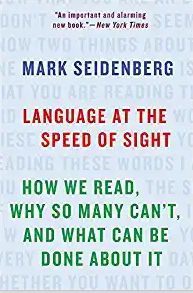Do you favor testing, or do you think it should banned? A lot of education experts think so. The experts assert that testing is counterproductive for our children. And yet, is that true?
If you don’t already have an opinion, I suggest we answer three questions. First, what do we mean by “test”? Second: does testing provide reasonably reliable information about a student’s progress? And third, in addition to its assessment potential, does the experience of testing have some value for students?
I Favor Testing as Defined by M-W
A test, according to Merriam-Webster.com, is “something (such as a series of questions or exercises) for measuring the skill, knowledge, intelligence, capacities, or aptitudes of an individual or group.” It also has a broader definition, which I’ll get to later.
Based on this definition, I am making no distinction between a chapter test, a class final or a standardized test like the SAT. The criterion for his grouping is that the test has an “objective” structure. That means that each item on the test is a question followed by a selection of possible answers, and only one of the selections is correct.
Why is this a requirement? An objective test like this leaves room for bias or misinterpretation. The right answer is available; the student just needs to know enough to select it. Other types of tests, even the fill-in-the-blanks variety, allow for answers that are close or misconstrued.
Essay questions can be a veritable cornucopia of student doubletalk and teacher bias. Plus, those tests are often testing for a student’s method of expression in addition to a certain level of knowledge. They are a nightmare to grade. Even with the use of a rubric to establish specific standards of performance, it is dependent on the judgement of the teacher.
The multiple-choice test eliminates all these issues. Every student has the same choices, and they don’t need to worry about their vocabulary, spelling, or punctuation. Naturally, there are specific variations in this approach depending on the type of class. For math, there should be one right answer, and any judgments about process (how a student came to an answer) invoke the shortcomings of the essay test.
Why Wouldn’t You Favor Testing?
Teachers and education experts now like to use the term “assessment” when they are speaking about testing. Assessment is the act of making a judgment about something. It’s just another branch on the testing tree. It is a broader term, and it allows for other types of judgements—verbal presentations, projects, journals, etc. Those are just fine, but they don’t offer the quantifiable, bias-free evaluation of objective testing.
And teachers and administrators know it. Phi Delta Kappan, the professional journal for educators, published this analysis by an administrator and parent Joshua Starr in 2017: I saw two important benefits in particular. First, test-based accountability forced schools and districts to learn how to use data in new and powerful ways. Second, and more important, the test results made it abundantly clear how poorly our schools were serving black, Hispanic, and low-income students, English language learners, and students with special needs. Thanks to standardized testing, we finally had proof that the system wasn’t serving all students at a high level.
It might be an exaggeration to suggest that testing happens everyday, but it’s essentially true. How many times a week does a fourth grader have a quiz or get a graded assignment back. Graded homework is about assessment. Quizzes are about assessment. Projects and presentations are about assessment. It’s all about assessment, and it’s continuous, and it’s necessary.
A Lot of Experts Favor Testing
In fact, Natalie Wexler, a senior education contributor at Forbes wrote in 2018 that “testing is a powerful lever for teaching and learning.” She concluded that, when students are tested on something they’ve just learned, they’re far more likely to retain it in long-term memory.” For this reason, she went on to suggest that students should not just be tested but should be tested frequently.
We can’t know if Johnny has learned to add and subtract without an assessment. The simplest, most uniform, and least disruptive form of assessment is objective testing. Even if the teacher gave Johnny the problems orally, it’s still a test. Furthermore, oral assessment is time consuming. For any reasonably comprehensive assessment, it would take a minimum of 20 minutes and probably longer. In a 40-minute class with a small group of students, say 24, a teacher would devote 12 class periods to one assessment.
Plus, if it is not going to be a public demonstration of Johnny’s competence, it requires a private location outside the classroom. That means another teacher or otherwise qualified adult is needed to supervise the class. In addition, what happens to the curriculum flow for the two or more weeks this one assessment are going on?
Isn’t it logical to prefer a multiple-choice test for one class period that can be graded by machine? Class time is precious, and it should be treated like the sparce commodity it is.
Should There Be More or Less Testing?
It is certainly possible for people of goodwill to disagree about the style and construction of a test. Many may not share my appreciation for multiple-choice objectivity. However, when it comes to the value of testing, the scientists appear to be leaning more and more dramatically on the side of testing more not less for two reasons.
First, frequent testing improves learning. In the Review of Educational Research, June of 2017, three researchers concluded, “The testing effect is a well-known concept referring to gains in learning and retention that can occur when students take a practice test on studied material before taking a final test on the same material. Research demonstrates that students who take practice tests often outperform students in nontesting learning conditions such as restudying, practice, filler activities, or no presentation of the material.”
An Edutopia article from October 2019 summarized two studies this way: “A 2006 study found that students who had brief retrieval tests before a high-stakes test remembered 60 percent of material, while those who only studied remembered 40 percent. Additionally, in a 2009 study, eighth graders who took a practice test halfway through the year remembered 10 percent more facts on a U.S. history final at the end of the year than peers who studied but took no practice test.”
Does Testing Provide Value for Students and Teachers?
Second, research indicates that standardized test results actually do predict students’ adult success levels. Dan Goldhaber is the director of the Center for Analysis of Longitudinal Data in Education Research (CALDER) at the American Institutes for Research and the director of the Center for Education Data & Research (CEDR) at the University of Washington. Umut Özek is a principal researcher at the American Institutes for Research.
Together they published an opinion piece in Education Week in October 2019, summarizing their findings this way. “Our view is that studies that might be considered causal do tend to find alignment between effects on test scores and later life outcomes. Perhaps the most influential studies in this strand were published in 2014 by Raj Chetty, John Friedman, and Jonah Rockoff, who found that students who were assigned to teachers deemed highly effective learned more as measured by tests and also were more likely to have better adult outcomes, such as attending college and earning higher salaries.”
As I said, it’s possible for people of goodwill to disagree. However, if you want the best chance to maximize your child’s potential, you should favor testing.




